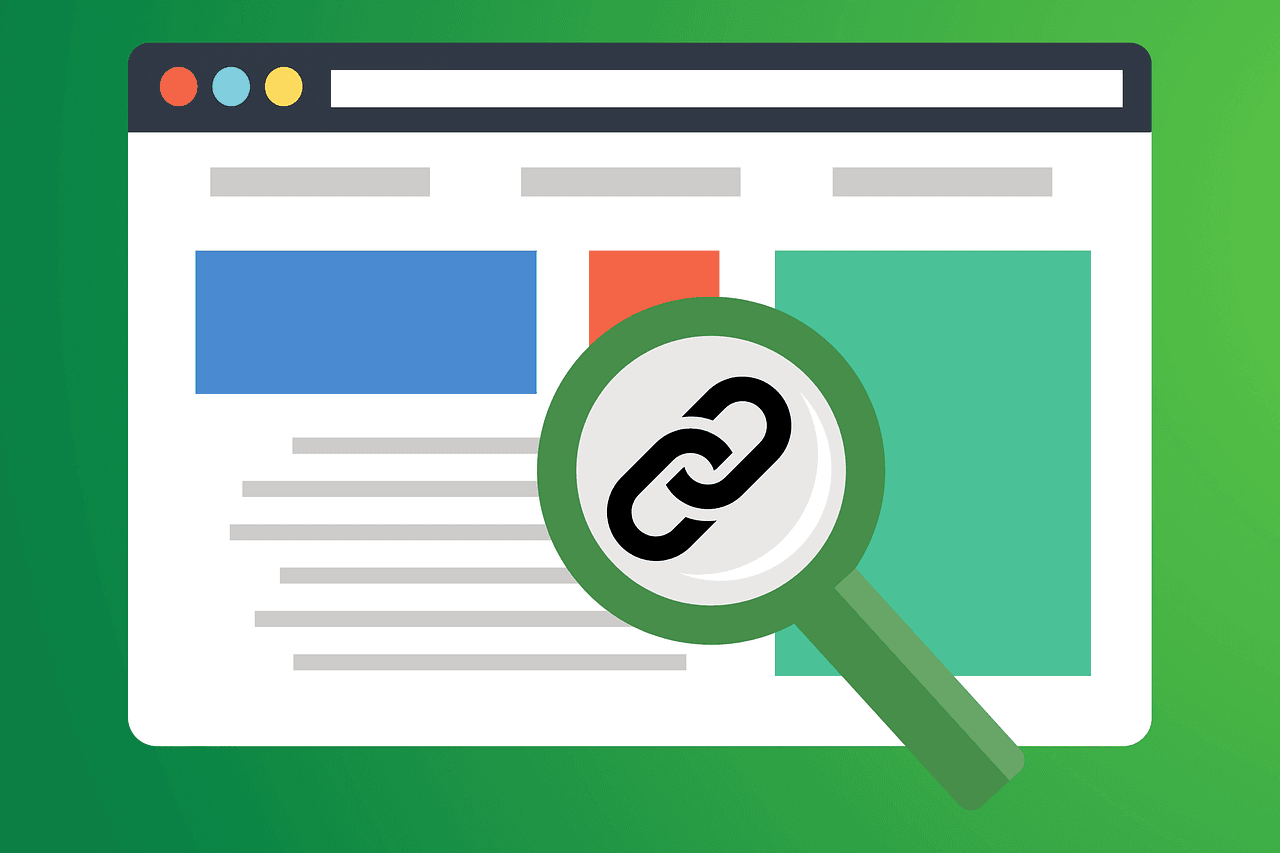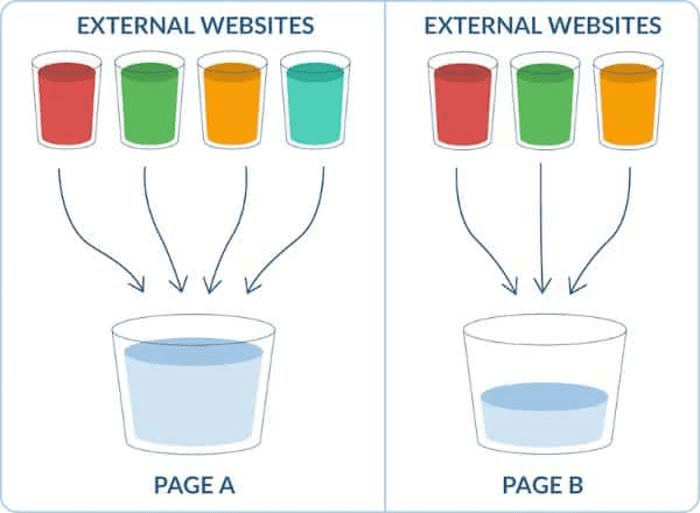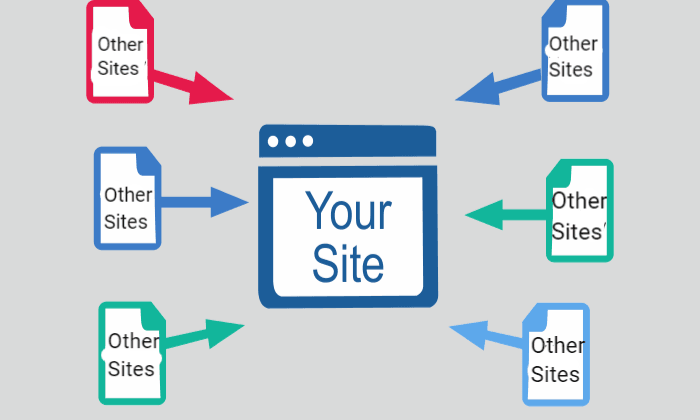SEO metrics are key data points that help evaluate the effectiveness of your website’s SEO efforts. By tracking metrics like organic traffic and keyword rankings, you can make informed decisions to boost performance. At Keyword Metrics, we break down these insights for you.
What Are SEO Metrics?
SEO metrics are the building blocks of any successful SEO campaign. They provide quantitative evidence of your website’s visibility, engagement, and overall health in search engine results pages (SERPs). For instance, metrics like organic traffic reveal how many users find your site through search engines, while bounce rate shows how engaging your content is to visitors.
Some common SEO metrics include:
- Keyword Rankings: Your position on SERPs for specific search terms.
- Domain Authority (DA): A score predicting your site's ranking potential.
- Backlinks: The number and quality of external links pointing to your site.
Why Are SEO Metrics Important?
SEO metrics are critical for:
Measuring Success
SEO efforts often take weeks or months to show results. Metrics provide tangible proof of progress, helping you determine whether your strategies are working. For example, a consistent rise in organic traffic indicates improved visibility.
Identifying Weaknesses
Metrics highlight areas where your website underperforms. For instance, a high bounce rate could signal poor user experience or irrelevant content.
Making Data-Driven Decisions
With reliable metrics, you can base decisions on data rather than guesswork. For example, tracking conversion rates helps prioritize high-performing keywords and landing pages.
Communicating Results
SEO professionals and agencies can use metrics to demonstrate value to clients. A report showing growth in impressions and clicks builds trust and accountability.
Key SEO Metrics to Track
1. Organic Traffic
Definition: The total number of clicks your website receives from unpaid search results.
Why It Matters: Organic traffic reflects your website’s visibility on search engines. A higher volume indicates successful SEO strategies and quality content.
Pro Tip: Use tools like Keyword Metrics and Google Search Console to monitor organic clicks and identify high-performing pages that drive traffic.
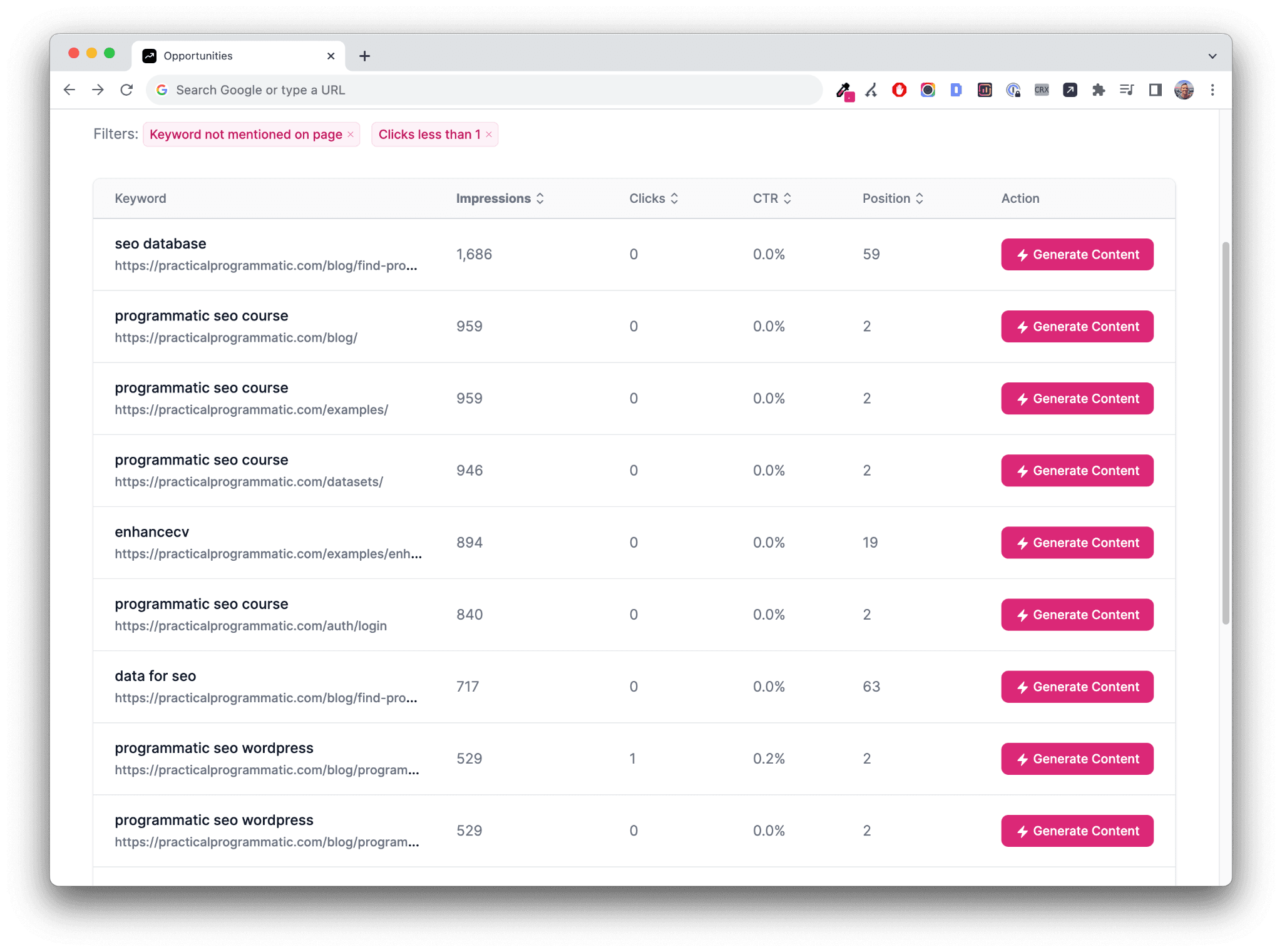
2. Keyword Rankings
Definition: Your website’s position in search engine results pages (SERPs) for specific keywords.
Why It Matters: Better keyword rankings mean increased visibility, which can lead to more clicks and conversions.
Practical Example: If you're optimizing for "best fitness gear," tracking its ranking helps you gauge the effectiveness of your content.
Pro Tip: Update your content regularly and target long-tail keywords to maintain or improve rankings.
3. User Engagement Metrics
Definition: Indicators of how users interact with your website, such as time on page, pages per session, and bounce rate.
Why It Matters: High engagement suggests your content meets user expectations, improving SEO performance and reducing bounce rates.
Actionable Tip: Use heatmaps or tools like Crazy Egg to analyze user behavior and improve layout, navigation, or content relevance.
4. Core Web Vitals
Definition: Google’s set of metrics measuring user experience, including loading performance (Largest Contentful Paint), interactivity (First Input Delay), and visual stability (Cumulative Layout Shift).
Why It Matters: Core Web Vitals directly impact rankings and user satisfaction. Websites that meet Google’s benchmarks often perform better in SERPs.
Pro Tip: Optimize images, use lazy loading, and minimize JavaScript to improve these scores. Use tools like Google PageSpeed Insights to track progress.
5. Backlinks
Definition: External links pointing to your website from other websites.
Why It Matters: High-quality backlinks from reputable sources signal authority and credibility to search engines, boosting your rankings.
Practical Example: A link from a leading industry publication can enhance your visibility and domain authority.
Pro Tip: Focus on building relationships with authoritative sites and creating shareable content to earn quality backlinks naturally.
6. Referring Domains
Definition: The number of unique websites that link to your site.
Why It Matters: A large and diverse set of referring domains is a strong indicator of your website’s authority and trustworthiness in the eyes of search engines.
Practical Example: Having 10 links from 10 different sites carries more weight than 10 links from a single site.
Pro Tip: Use tools like Ahrefs or Moz to analyze referring domains, identify gaps, and strategize for more diverse link-building opportunities.
7. Traffic Cost
Definition: The estimated cost of generating your organic traffic through paid search campaigns.
Why It Matters: Traffic cost provides a monetary valuation of your SEO efforts, helping to showcase the ROI of organic traffic.
Actionable Tip: Use tools like SEMrush or Ahrefs to calculate traffic cost and benchmark it against competitors to understand your performance.
8. Average Click-Through Rate (CTR)
Definition: The average percentage of users who click on your site’s link when it appears in search results.
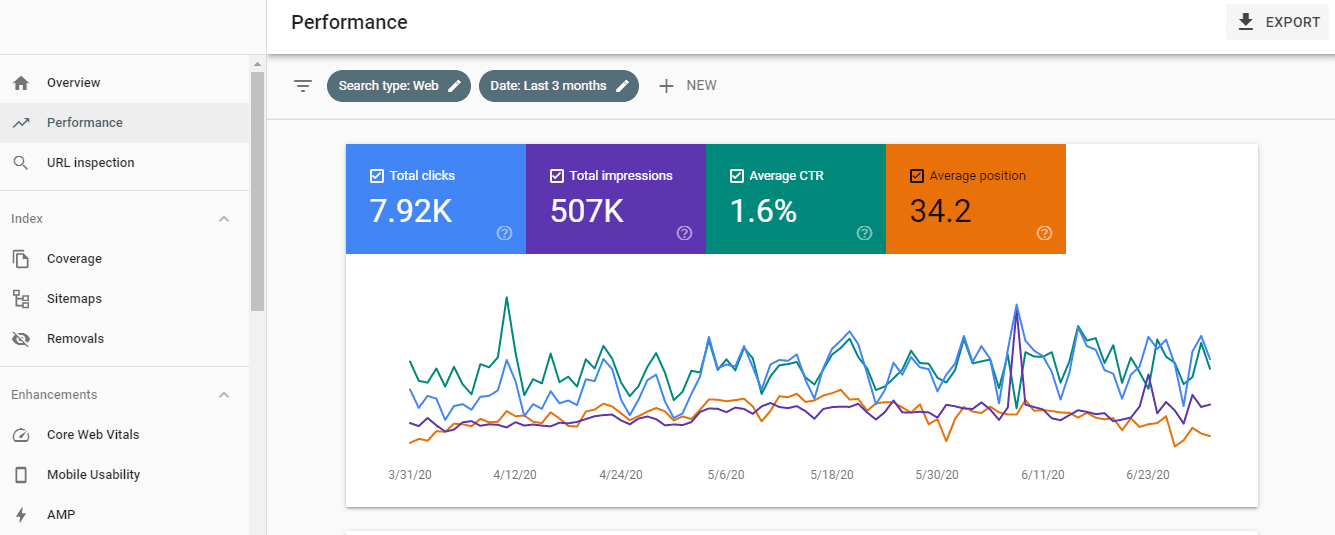
Why It Matters: A high CTR indicates that your titles and meta descriptions are engaging, relevant to user intent, and can drive traffic. It’s important to note that Google often rewrites meta descriptions based on search query relevance, so optimizing them for clarity and relevance is crucial.
Actionable Tip: Focus on crafting concise, compelling titles and descriptions that match user intent, even though Google may rewrite them. Regularly monitor your CTR trends in Google Search Console to identify areas where your meta data could be more appealing to users.
Pro Tips for Using SEO Metrics Effectively
Set Clear Goals
Define what success looks like for your campaign. Whether it’s boosting organic traffic by 20% or increasing conversions, clear goals help you focus on relevant metrics.
Use the Right Tools
Leverage tools like Keyword Metrics, Google Search Console, Ahrefs, and SEMrush to track, analyze, and interpret your SEO data.
Monitor Regularly
SEO is not a one-time effort. Regularly monitor your metrics to identify trends, spot issues, and make timely adjustments.
Benchmark Against Competitors
Compare your metrics to industry averages or competitors to understand your relative performance.
FAQs on SEO Metrics
Q. What are the most important SEO metrics?
A. The most important metrics depend on your goals. For most campaigns, organic traffic, keyword rankings, and referring domains are essential.
Q. How do I improve my SEO metrics?
A. Focus on high-quality content, improve site speed, build authoritative backlinks, and optimize your on-page SEO elements.
Q. Can I track SEO metrics for free?
A. Yes! Tools like Google Analytics and Google Search Console offer robust, free tracking options.
Q. What’s the difference between a metric and a KPI?
A. A metric is a measurable data point, while a KPI (Key Performance Indicator) is a specific metric tied to your campaign’s goals, such as "increase organic traffic by 25%."
Related Glossary Terms to Explore
- Backlinks: Learn how backlinks boost domain authority.
- Domain Authority: Understand its role in predicting search performance.
